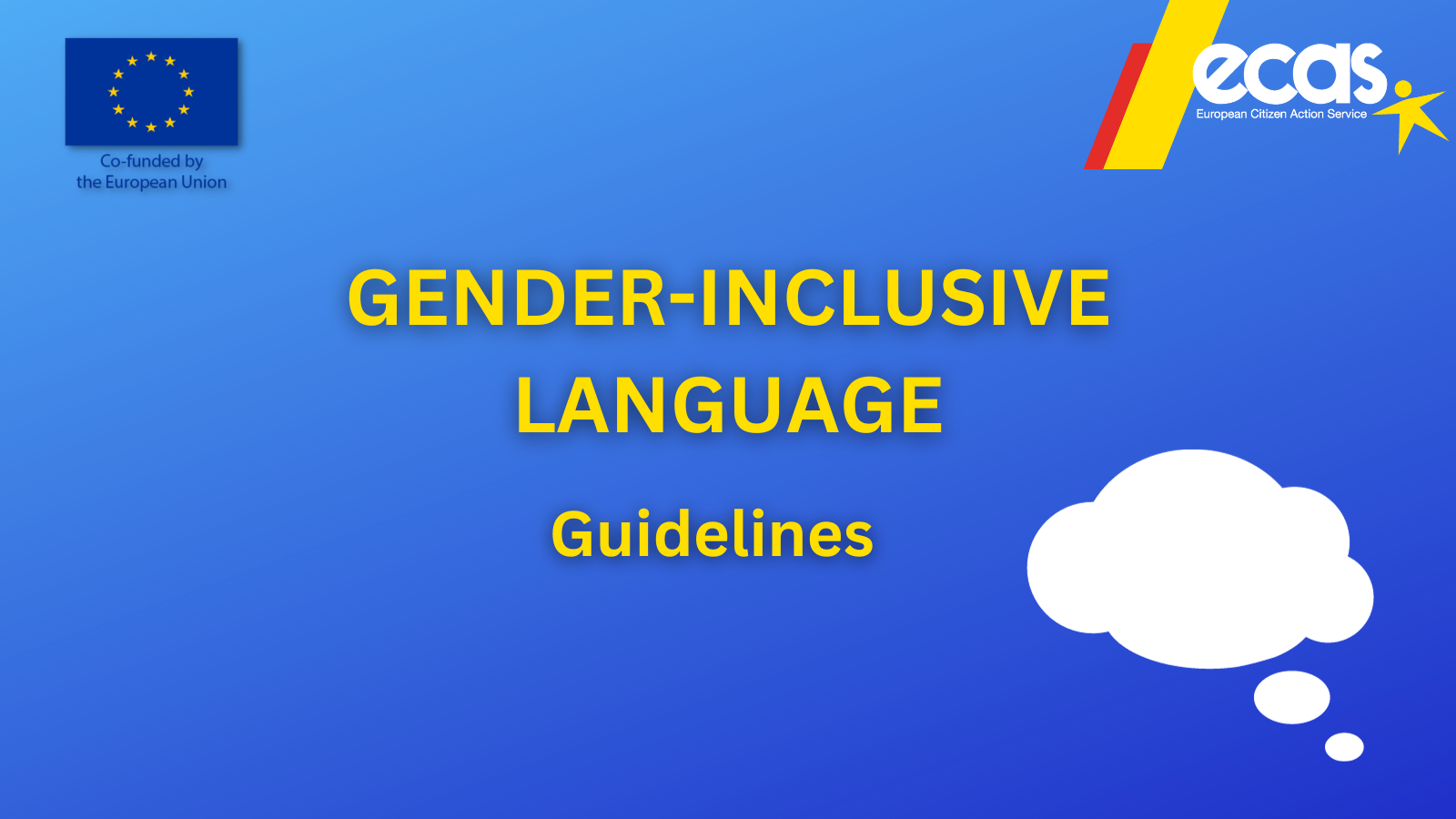
At ECAS, we are committed to gender equality and non-discrimination on gender grounds. The use and promotion of gender-inclusive language is one of the ways of implementing this commitment.
Sometimes we may in fact imply cultural stereotypes in our expressions even when we don’t hold discriminatory or hurtful assumptions, and this contributes to strengthening those stereotypes. To be gender inclusive in our text and speech, we should actively avoid language expressions based on stereotypical and discriminatory cultural attitudes. Language that is gender inclusive accepts and values each individual for who they are, reduces gender stereotyping, raises awareness of diversity, promotes social change, and advances equality.
Read the Guidelines below: